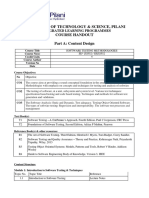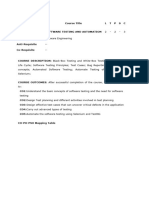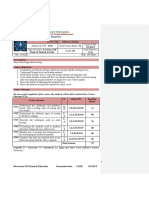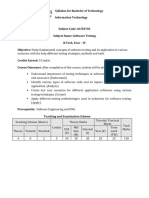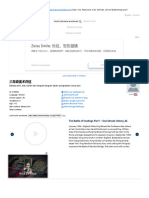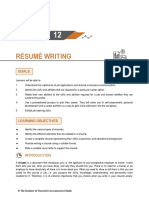0% found this document useful (0 votes)
9 views4 pagesSTQA Syllabus
Here is the software testing quality assurance syllabus
Uploaded by
siddhuvedant20Copyright
© © All Rights Reserved
We take content rights seriously. If you suspect this is your content, claim it here.
Available Formats
Download as PDF, TXT or read online on Scribd
0% found this document useful (0 votes)
9 views4 pagesSTQA Syllabus
Here is the software testing quality assurance syllabus
Uploaded by
siddhuvedant20Copyright
© © All Rights Reserved
We take content rights seriously. If you suspect this is your content, claim it here.
Available Formats
Download as PDF, TXT or read online on Scribd
/ 4

















